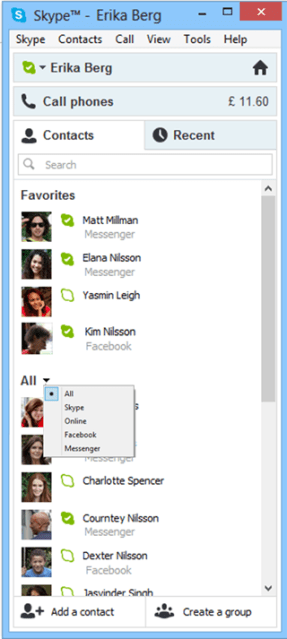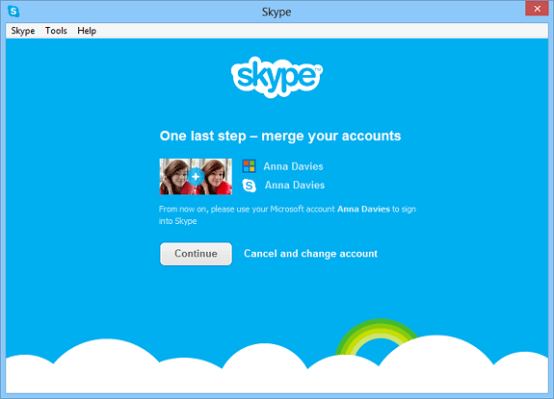Confirming earlier reports, Microsoft officially announced today it would be retiring its Windows Live Messenger instant messaging service in favor of Skype. In a post on the Skype blog, Tony Bates, Microsoft President, Skype Division, explained that Windows Live Messenger would be retired for all users in the first quarter of 2013, with the only exception being mainland China.
Windows Live Messenger will live on in China, with no announced termination date for the service there. Microsoft notes that the move to migrate users from Windows Live Messenger to Skype began with the release of Skype 6.0 for Mac and Windows a fews weeks ago. In that version, users could begin to sign into Skype using a Microsoft account. After doing so, Messenger contacts are brought over as well. The Skype app available for Windows Surface/Windows 8 PCs forces this change as well – once you sign in, you’re prompted to merge your Microsoft account with your Skype account.
 Today’s blog post walks users through the switchover process, and promises some “special offers later this year” for Messenger users making the switch. These will likely include things like free calling credits or other discounts toward some of Skype’s premium features.
Today’s blog post walks users through the switchover process, and promises some “special offers later this year” for Messenger users making the switch. These will likely include things like free calling credits or other discounts toward some of Skype’s premium features.
Meanwhile, Brian Hall shares the same message about Messenger’s end on the final post of the Inside Windows Live blog. In it, he addressed Messenger’s 12-year history and users’ subsequent transition away from IM to SMS, as well as social networking sites like Facebook and Twitter. “Skype,” says Hall, “became the best way to have video and voice calls (in addition to also letting you IM).” Hall also teases some forthcoming Outlook.com integration, saying, “we will enable Skype to work better with Outlook.com than Messenger ever has too.”
For those who grew up in the pre-Facebook, pre-smartphone era, the news is bittersweet. Some of our first social activity online took place using instant messaging programs like AIM, ICQ and Windows Live, once known as MSN Messenger. But it makes sense to end operations, given that the world, as Microsoft acknowledges here, has largely moved on to other platforms and services.
Although no mention was made of it in either blog post, it’s likely that the Windows Live Messenger iOS application and Windows Live Messenge for Xbox will also be phased out in the future. An earlier report from The New York Times in April speculated that Skype for Xbox wouldn’t be ready in 2012, as Microsoft would focus on other priorities, like integrating Skype into its business product, Lync, for example.
Windows Live Messenger user numbers have been dwindling over the years. In 2010, it had 300 million users. Today, Microsoft is saying “millions” in its blog posts. (We’ve asked Microsoft if it would like to give us a solid number here. Update: Microsoft confirms that “100 million+” is correct.) Skype, meanwhile, has reached 280 million users, according to numbers sourced from Microsoft’s latest earnings report. Skype currently touts having 40 million users online at peak times.
